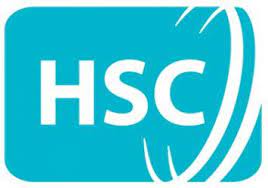If you are a carer, please let us know by completing our form below: we may be able to help you
Contact Carers Direct: 0808 802 0202
Email: [email protected]
Office Hours
Lines are open 8:00am to 9:00pm Monday to Friday, 11:00am to 4:00pm at weekends. Calls are free from UK landlines. Helpline Information: Click on the link below for more information
There is a wealth of information on the NHS website about carers and caring. Below are some links into the site that we hope you will find useful.
- A guide to care and support: Information for carers and people who have care & support needs.
- Caring for someone: Advice on providing care, medicines etc.
- Care after hospital: Providing care for people who have been recently discharged from hospital.
- Taking a break: Caring for someone can be a full-time job – find out about accessing breaks and respite care.
- Support and benefits for carers: Caring for someone can be a full-time job – find out about accessing breaks and respite care.
- Work and Disability: Guidance, support and help with employment issues.
- Being a Young carer: Advice for carers 18 or under and their entitlement to support
Finance and Law
Help claiming benefits, looking after your bank balance and understanding the legal issues of caring.
- Benefits for carers: Directing carers to the benefits that can help them in their caring role
- Benefits for the under-65s: Advice and information on helping the person you look after get the benefits that they are entitled to.
- Benefits for the over-65s: Advice and information on financial support for older people with a disability or illness.
- Carer’s Assement: How your benefits maybe affected after the death of the person you look after and what happens to their benefits
- Other benefits: Advice for carers and the people they are looking after on claiming a whole host of other benefits unrelated to their disability or caring
Who are Carers?
A carer is a person of any age (including children) who provides unpaid support to a partner, relative, friend or a neighbour who could not cope without their help. This could be due to old age, frailty, disability, a serious health condition, mental ill health or substance misuse. Parents of children who are disabled or who have a serious health condition are also considered to be carers.
There is a difference between a carer and care professionals who are paid to provide care. Some carers receive statutory payments or a direct payment for their caring role. Even when carers do not receive such payments, they are still considered to be carers.
Many carers may not identify themselves as a carer. Instead, they see themselves as someone’s partner, relative or friend who is simply ‘doing their best’ to help someone they care about. For this reason, asking ‘do you look after someone?’ can be a more effective question than ‘are you a carer?
Carers NI Information
Please click the link below for Carers NI Information.
This information aims to help people with long term health conditions, or those caring for them, develop the skills and confidence needed to better manage their situation day to day and beyond. The information look at ways to help manage the effects of their long-term condition or caring situation such as:
- Dealing with pain and tiredness
- Dealing with feelings of frustration, depression and isolation
- Learning relaxation techniques and increasing physical activity
- Encouraging healthy eating
- Communicating with family and health professionals
- Reviewing appropriate use of medication
- Planning for the future

